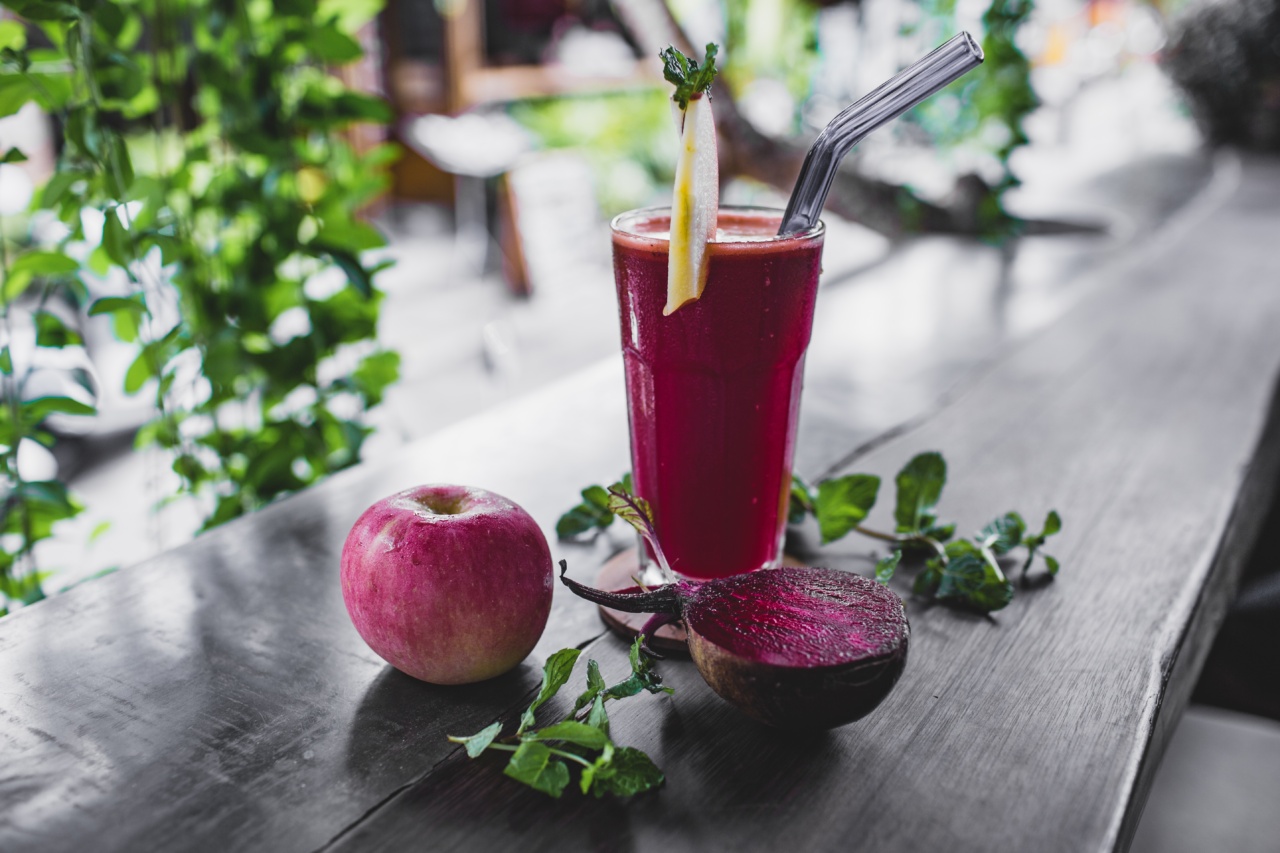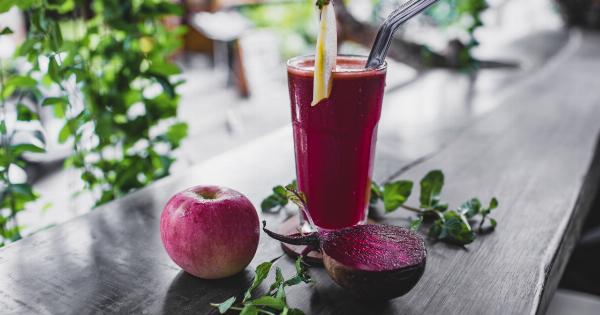High blood pressure, or hypertension, affects billions of people worldwide and is a leading risk factor for heart disease, stroke, and other serious health conditions.
Finding natural ways to lower blood pressure is crucial in maintaining overall cardiovascular health. While medication is often prescribed to manage hypertension, research has shown that beetroot juice may be a beneficial addition to any blood pressure-lowering regimen.
This article delves into the research surrounding beetroot juice and its potential to improve blood pressure.
Understanding Blood Pressure
Before delving into the benefits of beetroot juice, it is important to understand the basics of blood pressure. Blood pressure is the force exerted by the blood against the walls of the arteries as the heart pumps it around the body.
It is measured in millimeters of mercury (mmHg) and consists of two readings: systolic pressure (when the heart contracts) and diastolic pressure (when the heart is at rest). Blood pressure is considered high if it consistently exceeds 130/80 mmHg.
The Role of Dietary Nitrate in Lowering Blood Pressure
Nitrates are naturally occurring compounds found in various vegetables, including beetroots. Within the body, nitrates are converted into nitric oxide, a molecule known for its vasodilatory effects.
Nitric oxide helps relax and widen the blood vessels, leading to improved blood flow and reduced blood pressure.
Research Studies on Beetroot Juice and Blood Pressure
A growing body of evidence supports the idea that beetroot juice can positively impact blood pressure levels. Several studies have been conducted to examine the effects of beetroot juice on blood pressure, and the results have been promising.
Study 1: The Nitrate-Reduced Hypertension Study
In a 2010 study conducted by Kapil et al., 15 healthy volunteers were given either nitrate-rich beetroot juice or nitrate-depleted beetroot juice as a control. The participants’ blood pressure was monitored before and after consuming the juices.
The results showed that consuming nitrate-rich beetroot juice significantly reduced blood pressure levels compared to the control group.
Study 2: The Effects of Beetroot Juice on Hypertensive Patients
A study published in the Journal of Nutrition in 2013 investigated the effects of beetroot juice on individuals with hypertension. The participants consumed either beetroot juice or a placebo for four weeks.
The findings indicated that beetroot juice consumption led to a significant reduction in systolic and diastolic blood pressure levels compared to the placebo group.
Study 3: The Long-Term Effects of Beetroot Juice
In a 2017 study conducted by Jajja et al., 30 participants with hypertension were given either nitrate-rich beetroot juice or a placebo for four weeks.
The study found that those who consumed beetroot juice experienced a significant and sustained reduction in blood pressure even four weeks after the intervention had ended.
The Mechanism Behind Beetroot Juice’s Blood Pressure-Lowering Benefits
One of the key components in beetroot juice responsible for its blood pressure benefits is dietary nitrate. When consumed, dietary nitrate is converted into nitric oxide through a series of chemical reactions in the body.
Nitric oxide acts as a vasodilator, relaxing and widening blood vessels, which in turn reduces blood pressure. Furthermore, beetroot juice also contains other compounds like betalains and polyphenols, which possess antioxidant and anti-inflammatory properties that contribute to overall cardiovascular health.
How to Incorporate Beetroot Juice into Your Diet
While the research regarding beetroot juice and blood pressure is promising, it is essential to consult with a healthcare professional before making any significant dietary changes or starting a beetroot juice regimen, especially for individuals with existing medical conditions or those taking medication.
If deemed suitable, beetroot juice can be easily incorporated into one’s diet. It is available as a standalone juice, or individuals can choose to juice beetroot at home using a juicer.
Some people might find the earthy taste of beetroot juice slightly overpowering, which is why it can be mixed with other fruits or vegetables to create a more palatable and enjoyable blend.
Potential Side Effects and Precautions
While beetroot juice offers several health benefits, it is essential to be cautious and mindful of potential side effects and precautions.
1. Beeturia: Some individuals may experience reddish or pinkish urine or stool after consuming beetroot. This condition, known as beeturia, is harmless but may be alarming for some.
2. Kidney Stones: Beetroot is high in oxalates, which can contribute to the formation of kidney stones in susceptible individuals. Those with a history of kidney stones should exercise caution and moderate their beetroot juice consumption.
3. Blood Pressure Medications: Beetroot juice may interact with certain blood pressure medications, such as ACE inhibitors or calcium channel blockers.
It is crucial to consult with a healthcare professional before incorporating beetroot juice into a blood pressure management plan.
Conclusion
The research surrounding beetroot juice and its positive effects on blood pressure is promising. Incorporating beetroot juice into one’s diet may provide a natural way to help manage hypertension and promote overall cardiovascular health.
However, it is essential to consult with a healthcare professional before making any significant dietary changes and to ensure beetroot juice does not negatively interact with any medications individuals may be taking.





























